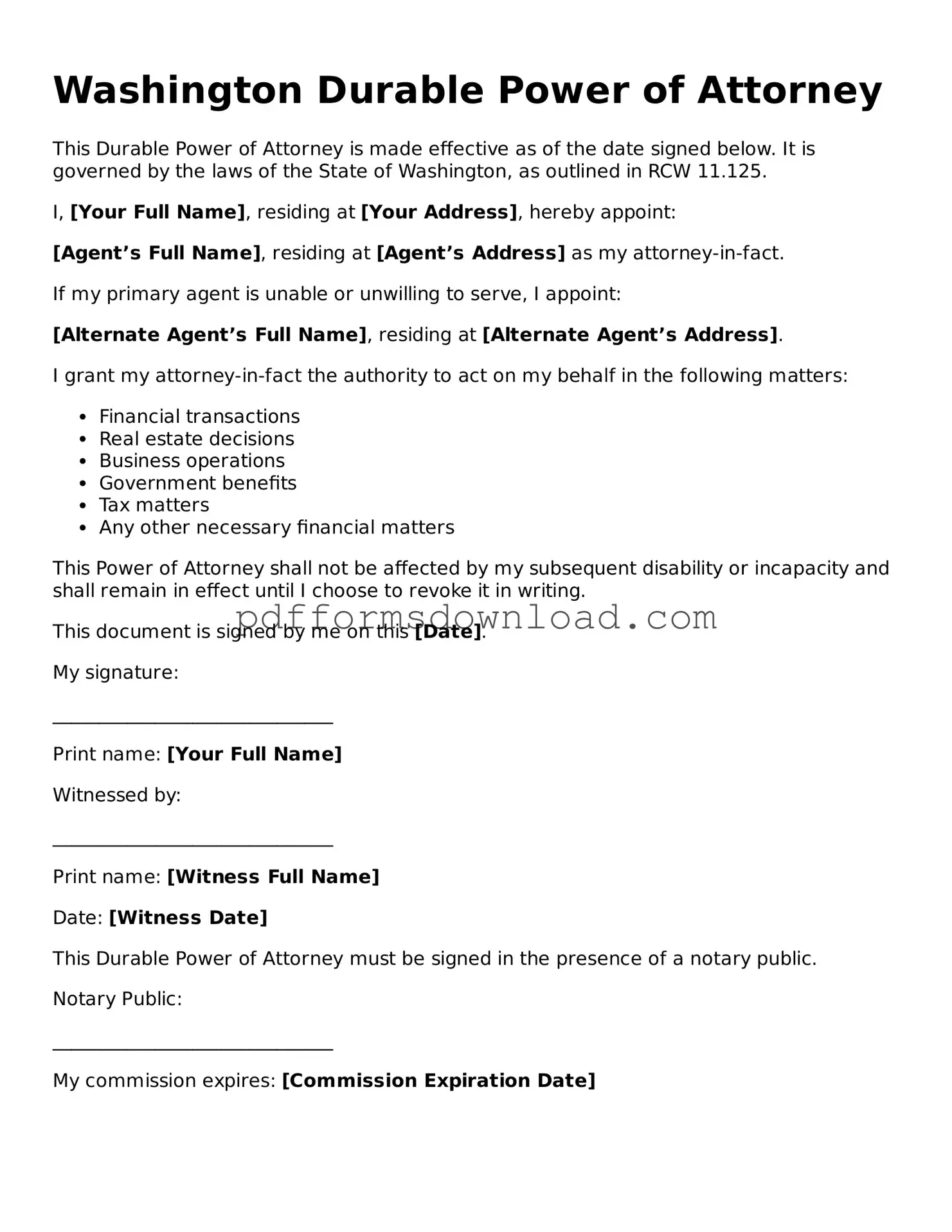Printable Washington Durable Power of Attorney Form
A Washington Durable Power of Attorney is a legal document that allows an individual to designate another person to make financial and legal decisions on their behalf, even if they become incapacitated. This form provides peace of mind by ensuring that someone trusted can manage important affairs when needed. To get started on filling out the form, click the button below.
Make This Document Now

Printable Washington Durable Power of Attorney Form
Make This Document Now

Make This Document Now
or
Free PDF File
Your form is almost ready
Complete your Durable Power of Attorney online — edit, save, and download easily.